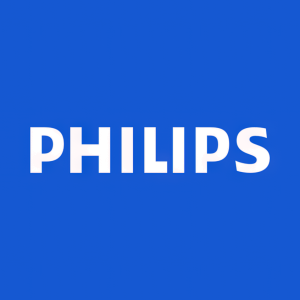Philips aims to advance cardiac MRI technology through AI-driven research
Rhea-AI Summary
Philips and Mayo Clinic announced a research collaboration to advance cardiac MRI technology through AI integration. The partnership aims to reduce complex MRI exam times and improve workflow efficiency by combining proprietary AI technologies from both organizations. The research will evaluate lower-field-strength MRI solutions to expand access for patients with metallic implants and explore ways to make cardiac MRI more accessible. With ischemic heart disease being the leading cause of global mortality and costing $252.2 billion in the U.S. (2021), this initiative targets improved patient care and broader MRI accessibility.
Positive
- Partnership with prestigious Mayo Clinic enhances research capabilities
- Potential to reduce MRI scan times and improve operational efficiency
- Technology could expand market reach by enabling less experienced staff to perform complex cardiac MRI
- Leadership in sustainable MRI with BlueSeal technology saved 2.75M liters of helium across 1,500+ installations
- Opportunity to tap into market for patients with metallic implants (3.9% of U.S. population)
Negative
- None.
News Market Reaction – PHG
On the day this news was published, PHG declined 1.64%, reflecting a mild negative market reaction.
Data tracked by StockTitan Argus on the day of publication.
December 3, 2024
Collaboration intends to leverage proprietary AI technology from Philips and Mayo Clinic to target breakthroughs in ease-of-use and efficiency to bring high-quality diagnostic MRI and better care to more patients with heart disease
Amsterdam, the Netherlands and Chicago, USA – Royal Philips (NYSE: PHG, AEX: PHIA) and Mayo Clinic today announced a research collaboration aimed at advancing MRI for cardiac applications. Through this investigation, Philips and Mayo Clinic will look to harness the power of AI and the expertise of Mayo Clinic physicians to increase operational efficiency by shortening complex MRI exams and improving workflow for radiologists.
Ischemic heart disease is the world’s leading cause of mortality, accounting for
“From the patient perspective, MRI scans can be stressful. A complex cardiac MRI exam can take over an hour, which is often challenging for patients who suffer from claustrophobia inside the bore of the scanner, find it difficult to lie still or are unable to hold their breath for the required time,” said Ioannis Panagiotelis, Ph.D., Business Leader of MRI at Philips. “By applying AI at every stage of a cardiac MRI exam, we intend to expand access and greatly improve the patient experience, increase departmental efficiency, and deliver the detailed diagnostic information needed for optimal patient outcomes.”
Applying AI to transform the patient experience and accelerate MRI exam times
The investigation intends to leverage Mayo Clinic’s proprietary AI technology in combination with Philips' AI-driven technology. Combining these investigational technologies can potentially help reduce MRI scan times, and improve the efficiency needed to relieve the burden on healthcare professionals and mitigate today's chronic shortage of trained staff. With the benefit of AI, even less experienced radiographers may be able to successfully perform complex cardiac MRI exams.
Expanding MRI cardiac access to wider patient populations
The research will also evaluate the potential of lower-field-strength MRI solutions developed by Philips. These solutions are designed to enable MRI installations in a broader range of locations and provide safer scanning options for individuals with implants sensitive to high magnetic fields. Around
Proven leader in diagnostic MRI helium-free operations
With its unique, innovative BlueSeal magnet technology, Philips is a recognized leader in sustainable, affordable cardiovascular MRI. It was the first company to introduce helium-free operations in MRI scanners in 2018, with nearly 2.75 million liters of helium saved, across more than 1,500 installations worldwide to date [5]. Join Philips at RSNA 2024 to learn more.
[1] World Health Organization (WHO) Fact Sheet: The top 10 causes of death. https://www.who.int/news-room/fact-sheets/detail/the-top-10-causes-of-death
[2] Centers for Disease Control and Prevention (CDC) Fact Sheet: Heart Disease Facts. https://www.cdc.gov/heart-disease/data-research/facts-stats/index.html
[3] https://www.philips.co.uk/healthcare/education-resources/publications/fieldstrength/mri-and-mr-conditional-implants.
[4] Kalin R, Stanton MS. Current clinical issues for MRI scanning of pacemaker and defibrillator patients. Pacing Clin Electrophysiol. 2005;28(4):326-328. doi: 10.1111/j.1540-8159.2005.50024.x https://pubmed.ncbi.nlm.nih.gov/15826268/
[5] https://www.usa.philips.com/healthcare/resources/landing/the-next-mr-wave/sealed-mr-technology?nocache
For further information, contact:
Kathy O’Reilly
Philips Global External Relations
Tel.: +1 978 221 8919
Email: kathy.oreilly@philips.com
About Royal Philips
Royal Philips (NYSE: PHG, AEX: PHIA) is a leading health technology company focused on improving people's health and well-being through meaningful innovation. Philips’ patient- and people-centric innovation leverages advanced technology and deep clinical and consumer insights to deliver personal health solutions for consumers and professional health solutions for healthcare providers and their patients in the hospital and the home. Headquartered in the Netherlands, the company is a leader in diagnostic imaging, ultrasound, image-guided therapy, monitoring, and enterprise informatics, as well as in personal health. Philips generated 2023 sales of EUR 18.2 billion and employs approximately 69,300 employees with sales and services in more than 100 countries. News about Philips can be found at www.philips.com/newscenter.
Attachments
- Patient preparing for a cardiac scan on the Philips Ingenia Ambition X MR system
- Philips Ingenia Ambition X MR system







